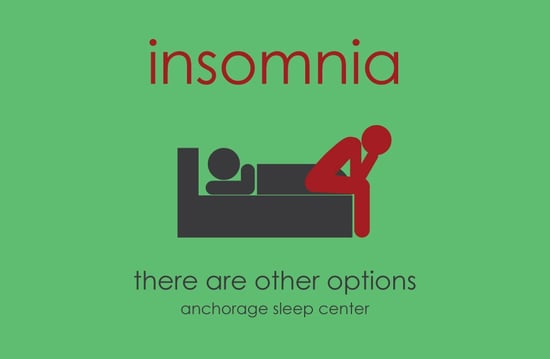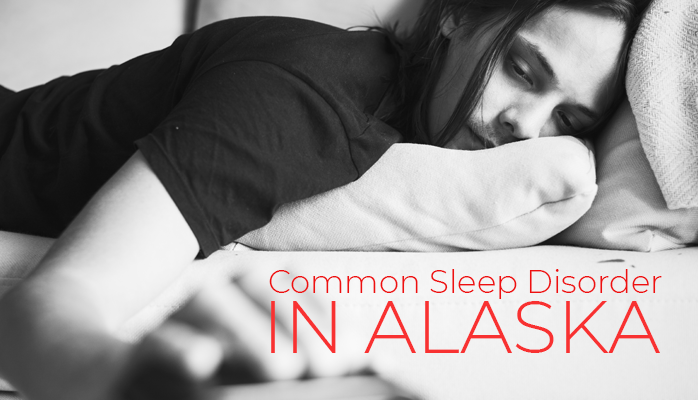Unique Challenges of Alaska
Living in Alaska poses unique sleeping challenges most months out of the year. Other than a few months between “spring” and “fall” in Alaska, we are dealing with darkness that lasts most, or all, of the day, or light that lasts most, or all, of the night.
These extreme light conditions present sleep challenges that are:
- Sociological
- Psychological
- Physiological
- Habitual
These challenges may come from changes in physical or social habits, from mental responses to the extreme lighting conditions, or from habits that change with the darkness. The two main challenges for people living in Alaska are:
- Insomnia
- Circadian Rhythm Disorder
Let’s look at how extreme light in Alaska poses these two risks.
Insomnia in Alaska - Symptoms
Insomnia is a condition where you chronically feel as if you are not getting enough sleep. This is particularly a concern for people in Alaska because of the extreme light/darkness conditions of winter and summer. Fittingly, even the movie Insomnia takes place in Alaska.
The primary symptom of insomnia is chronically feeling like:
- You have severe difficulty falling asleep
- You have lots of trouble staying asleep
- You wake up much earlier than you want
Insomnia can be detrimental in minor cases, to debilitating in severe cases. In addition, other symptoms may include [SleepEducation]:
- General performance loss in many important areas of life (work, relationships, etc.)
- Daytime tiredness and fogginess
- Anxiety and depression
- Mood troubles
In many cases, there are identifiable causes for insomnia, such as stress, medications, depression/anxiety, or in the case of Alaska, the extreme light dark conditions of Alaska.
Side Effects of Insomnia
To some extent, the side effects of insomnia and the symptoms of insomnia overlap. Insomnia can cause or worsen:
- Mood problems
- Anxiety
- Depression
- Fogginess and tiredness
- Performance troubles
- Cognitive impairment
- Poor quality of life
- Occupational injury
 Insomnia can be treated - it starts with a sleep evaluation
Insomnia can be treated - it starts with a sleep evaluation
The cumulative long term effects of sleep loss characteristic of insomnia include a variety of serious medical problems, including increased risk of [WebMD]:
- Psychiatric problems
- High blood pressure
- Dying younger
- Heart failure and heart attack
- Memory loss
- Weight gain
- Chronic poor performance in nearly every aspect of life
Truly, the most immediate detrimental effects of insomnia-induced sleep deprivation are centered on potential degradation of social relationships, physical and cognitive performance, and emotional relationships. Depending on the severity of the insomnia and sleep loss, these depredating effects can be crippling.
Why Winter and Summer in Alaska Can Contribute to Insomnia
The extreme light and darkness conditions in Alaska can disrupt your circadian rhythm. Changes in light and darkness prompt to the body to secrete or stop secreting melatonin, the hormone that regulates sleep. In other words, melatonin is light sensitive.
Disrupted circadian rhythm quickly falls down the slippery slope of erratic sleep, quickly resulting in:
- Onset of insomnia or like-symptoms
- Increased severity of existing insomnia
Absence of daylight can interfere with the normal rhythm of your body’s production of melatonin, the hormone that helps regulate your circadian rhythm. Likewise, constant daylight, such as during the summer in Alaska, may not give your body the cue to start producing melatonin.
This can lead to not producing enough melatonin before bed or producing melatonin too early. Either way, your circadian rhythm and subsequent sleep schedule can be thrown way off. Considering you have responsibilities like work, family, social life, etc., it’s your sleep time that generally ends up suffering, and you never feel that you are getting enough sleep when you need it – the definition of insomnia.
Circadian Rhythm Disorders in Alaska
Your circadian rhythm is your biological sleep clock. This biological sleep clock is a part of your brain called the suprachiasmatic nucleus of the hypothalamus, and sits right behind the nerves of your eyes.
Circadian rhythm disorders are often in response to your external factors:
- Extreme light (i.e. Alaska)
- Extreme darkness (again, Alaska)
- Shift work
- Jet lag
- A circadian rhythm that is “non-standard” – i.e. if you natural schedule is sleeping from 4am-11am, but your work schedule begins at 7am
Symptoms of circadian rhythm are fairly straightforward: when you want or need to sleep is when you can’t sleep.
Causes of Circadian Rhythm Disorders in Alaska
The extreme light of summer and extreme darkness in winter can throw off your circadian rhythm. Mainly, you lack the natural environmental cues to get sleepy or wake up, as previously discussed with melatonin.
However, the unique conditions of Alaska also pose other lifestyle reasons for circadian rhythm disorders:
- Fishing season involves long and odd hours (night and morning) for fishermen, potentially leading to circadian rhythm disorders
- Long day lit nights involve more “night time” activities, distractions, etc.
- Long day lit nights contribute to more shift work
- Long days of cold and darkness promote physical restlessness – you have to be very conscious about “getting out” enough in Alaska during the winter
- The change from summer to winter can be mentally taxing to adjust to
In short, the long nights and long days of Alaska provide many avenues and reasons to develop circadian rhythm disorders.
Ways to Combat Insomnia and Circadian Rhythm Disorders in Alaska
To combat insomnia and circadian rhythm disorders in Alaska, good things you can do are:
- Use light therapy during the winter
- Have strict bedtime routines
- Create a restful sleeping area (dark, noise free, comfortable, etc.)
- Take warm bath about an hour before bed (getting out of the bath tricks your body into thinking there is a temperature drop, a precursor to sleep)
- Consult with a sleep specialist to express concerns, difficulties, or seek guidance



